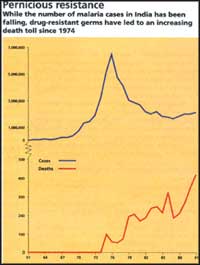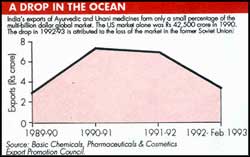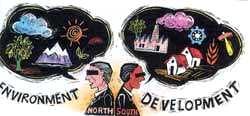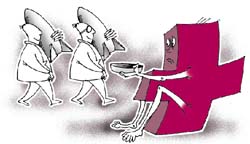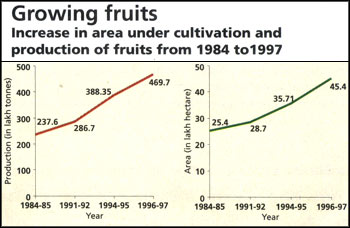Skirting commitments on all controversial issues like Special Economic Zones (SEZs) and the Indo-US Civil Nuclear Agreement, the government today made it clear that pro-people, inclusive social and economic policies alone would be pursued in the last year of its five-year term. The President's address to the joint session of Parliament, traditionally a summary of the government's activities during the previous year and its priorities for the coming year, spelt out only those issues on which there was parliamentary consensus. Therefore, while showcase schemes like the expansion of the National Rural Employment Guarantee Programme and the Sarva Shiksha Abhiyan were held up as ways in which the government had embraced the poor, contentious issues like Left extremism, land reforms and labour legislation were not even mentioned in the speech. Much was made of Bharat Nirman, the National Rural Health Mission and the Jawaharlal Nehru Urban Renewal Mission. This was made possible, the government said, because of the performance of the Indian economy that has grown at close to 9 per cent per annum for four years in a row. "The historically high investment rate, of over 35 per cent of GDP, and savings rate, of over 34 per cent of GDP, symbolise a new dynamism in our economy,' the government said in the address, adding that this was all the more creditable against the background of high international oil prices and rising commodity prices. The government said the Indian consumer would continue to be insulated against high international costs of food commodities and oil, putting paid to any tinkering in the duty structure and subsidies in oil and gas. The government said outlays on agriculture, health and rural development had been tripled and together with education, these sectors account for more than half of the Central Gross Budgetary Support as compared to less than one-third in the Tenth Five-Year Plan. "This is a major structural shift in Plan priorities, aimed at reducing disparities and empowering people,' the address said. It added that attention had been focused on areas like agriculture and the target set in the National Common Minimum Programme, of doubling agricultural credit in three years, had been exceeded. However, the government did not commit itself on the implementation of the Radhakrishna report on rural indebtedness. Conscious that it was under fire on the issue of agricultural prices, the address said the government had effected "an unprecedented steep hike of over 50 per cent in the Minimum Support Price (MSP) for wheat and about 33 per cent for paddy in the last four years'. Specific sectoral successes like the legislation for unorganised labour, increase in the level of minimum wage from Rs 66 to Rs 80 per day, increase in the eligibility limit for payment of bonus to workers from Rs 3,500 to Rs 10,000 per month, and the National Rehabilitation and Resettlement Policy for people displaced from their land due to development projects, were also mentioned as landmark schemes. Despite the prime minister's repeated warnings on the performance of the power sector, the President's address only patted itself on the back for allotment of coal blocks with the capacity to support 68,000 Mw of power generation and the identification of nine sites in for setting up coal-based Ultra Mega Power Projects (UMPP) with capacity of 4,000 Mw each. Nor was there any mention of when additional spectrum would be allotted for the telecom industry, even as the government announced that the Indian telecom sector had emerged as the fastest growing in the world with the addition of over 7 million subscribers per month. On SEZs, the address said the government had already provided direct employment to about 100,000 people, with indirect employment estimated at twice as much. "They have attracted investment of over Rs 50,000 crore, and are expected to generate exports of Rs 67,000 crore this year,' the address said. Meanwhile, the third front declared that the President's speech skirted around major problems facing the country, including that of continuing farmer suicides and inflation. The United National Progressive Alliance (UNPA) leaders said they had support of UPA allies CPI(M) and CPI in their attempts to raise these issues in the public realm. According to the Samajwadi Party general secretary Amar Singh, CPI(M) leader Prakash Karat and CPI leader A B Bardhan will be participating in a UNPA-sponsored dharna on farmer suicides to coincide with the presentation of the railway budget on Tuesday.


